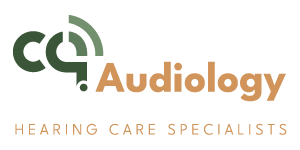You may notice early signs of hearing loss in everyday situations, like struggling to follow conversations in noisy restaurants or frequently asking people to repeat themselves. You might find yourself turning up the TV volume more than usual or relying on watching people’s faces to understand them better. If you’re experiencing increased fatigue after social interactions or avoiding gatherings altogether, these could be important indicators that warrant further exploration.

Common Social Situations That Reveal Hearing Problems
When you’re in social settings, the first signs of hearing loss often become apparent through everyday interactions. You might find yourself asking people to repeat themselves during restaurant conversations or struggling to follow discussions in noisy environments. Group meetings can become particularly challenging as you strain to understand multiple speakers.
Family gatherings may reveal difficulties when you can’t hear soft-spoken relatives or miss parts of stories being shared across the room. You’ll notice yourself turning up the TV volume higher than others prefer or missing the doorbell when visitors arrive. Phone conversations might become frustrating as you struggle to understand callers, especially those with higher-pitched voices. These situations often prompt loved ones to express concern about your hearing, which could be an important wake-up call.
Behavioral Changes Associated With Early Hearing Loss
Have you noticed changes in your daily behaviors as hearing loss sets in? You may find yourself turning up the TV volume more frequently or positioning yourself closer to speakers during conversations. You’ll likely start reading lips and watching facial expressions more intently to understand what’s being said.
Many people with early hearing loss begin avoiding social situations, especially in noisy environments like restaurants or parties. You might feel more tired than usual from the extra concentration required to follow conversations. It’s common to become frustrated or irritable when you can’t hear properly, and you may start withdrawing from activities you once enjoyed. You might also catch yourself pretending to understand conversations or nodding along without actually hearing what’s being said.
Physical Symptoms to Watch For
Beyond the behavioral changes, several physical symptoms can signal early hearing loss. You might experience a persistent ringing, buzzing, or humming in your ears, known as tinnitus. Your ears may feel full or plugged, similar to the sensation when flying in an airplane. Some people report mild dizziness or problems with balance.
Physical discomfort can also occur when you’re exposed to certain sounds that didn’t bother you before. You might feel pain or increased sensitivity to loud noises. Watch for headaches that develop after social gatherings or long conversations. Additionally, you may find yourself straining your neck or turning your head frequently to position your “better ear” toward sound sources, which can lead to muscle tension and soreness.

Impact on Daily Communication
Living with early hearing loss can dramatically affect your everyday conversations and social interactions. You might notice yourself frequently asking others to repeat themselves or struggling to follow discussions in noisy environments like restaurants or group settings. Phone conversations may become particularly challenging, especially with unfamiliar voices or poor connections.
You’ll likely find yourself relying more on visual cues, like watching people’s lips as they speak. Background noise that was once manageable may now interfere with your ability to distinguish speech. You might also start avoiding social gatherings or withdrawing from conversations because it’s becoming too difficult to keep up. Family members may comment that you’re setting the TV volume higher than usual or missing important parts of conversations.
When to Seek Professional Help
When should you take action on suspected hearing loss? You shouldn’t wait until your hearing problems become severe. Schedule an appointment with an audiologist or hearing specialist if you’re experiencing any of these signs: frequently asking people to repeat themselves, turning up the TV volume higher than others prefer, or struggling to follow conversations in noisy environments.
It’s especially important to seek immediate medical attention if you experience sudden hearing loss, persistent ringing in your ears, or hearing loss accompanied by dizziness or ear pain. Don’t delay if you notice these symptoms – early intervention can prevent further damage and improve treatment outcomes. Your doctor can perform tests to determine the cause and recommend appropriate solutions, from simple earwax removal to hearing aids.
